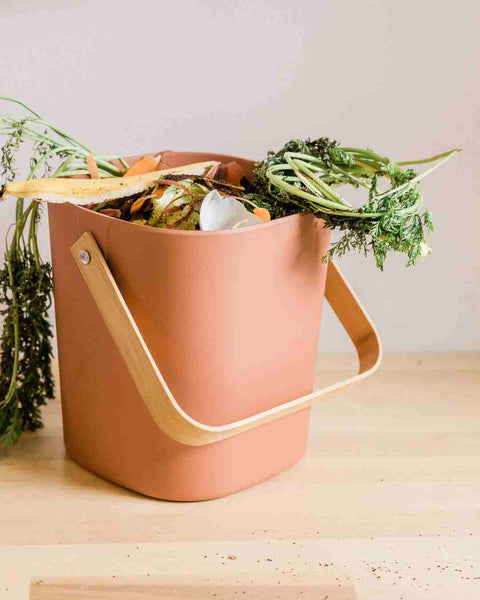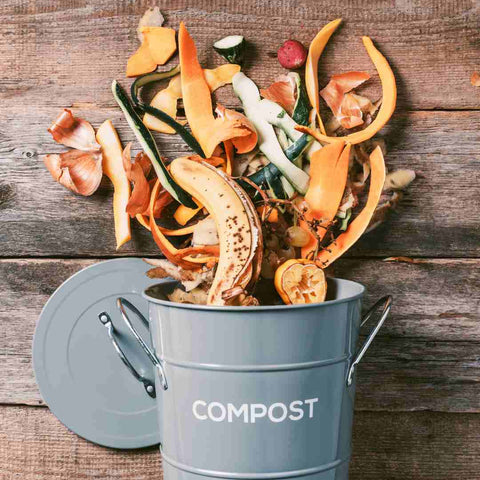1. Introduction
Ah, composting is like preparing a delicious meal for your plants, or for your worms if you have a worm composter! But what do they eat? Follow me to discover good practices and tips for an odorless composter.
2. What is Compost?
Imagine a feast for microorganisms and earthworms. Compost is a sort of gourmet meal for the garden, created by recycling organic waste like kitchen scraps and dead leaves. It is natural magic that transforms waste into rich and fertile soil. In addition, since January 1, 2024, we are required by the Biowaste law to compost our green waste.
3. What foods can I compost?
3.1 Fruit and Vegetable Peels
Nothing like peelings to give a special flavor to your compost. They are full of essential nutrients.
3.2 Coffee grounds
Spent coffee beans are a treat for compost microorganisms. They add a touch of caffeine to your potting soil.
3.3 Dry materials (cardboards, dead leaves, egg cartons)
Leaves fallen from trees are like cozy blankets for your compost, keeping them warm and well-ventilated. We can compost dry materials such as paper towels, cardboard or egg cartons. This will help balance the humidity in the composter and circulate the air.
4. What foods can't I compost?
4.1 Meat and Fish
Forget leftover steak or fish. They can make your compost smelly and attract unwanted visitors. You can make broth with the carcass, and throw the remains in the household trash.
4.2 Dairy Products
Milk belongs in your refrigerator, not in your composter . It can cause odor problems. You can throw leftover milk or yogurt in the sink, this is ideal for maintaining bacteria in the septic tank.
4.3 Citrus fruits
Their skin is thick and their decomposition is slow, plus citrus fruits can acidify your compost, which is not ideal. You can put your leftover citrus fruits in white vinegar to flavor your cleaning products.
The same goes for garlic and onion, they decompose very well in a compost bin, but they are too acidic for the worms in a worm composter.
4.4 Plastic Waste
Plastics do not decompose, obviously, and they have no place in a composter. Be careful with so-called “Compostable” packaging, they are not always so!
5. Composter Odorless for apartment
An odorless composter ? Yes it's possible! The LFC compost kit is ideal for composting almost all your leftovers, because this closed bag contains a substrate based on charcoal and coconut fiber, which will capture odors, and naturally help with decomposition. I've been using it for over 2 years and I never have any smell or insects. This is the most practical of all the solutions I tested.
7. The Steps of Composting
1. Waste Collection:
Collect your kitchen and gardening waste. You can use a compost bucket in the kitchen that you will empty regularly.
2. Layering:
Alternate wet and dry materials to encourage decomposition.
3. Ventilation:
Mix regularly to provide essential oxygen.
4. Patient Waiting:
Let nature do its work for a few weeks to a few months. Composting takes time.
8. The Importance of Balance
Maintaining the balance between carbon-rich waste (dry leaves) and nitrogen-rich waste (kitchen scraps) is key. Too much of either can disrupt the symphony of composting .
9. Easy Compost Maintenance
You don't have to be a mad scientist to maintain your composter. Just keep an eye on humidity, waste size and aeration frequency.
10. Compost and Gardening
Is your compost ready? Congratulations! It's time to integrate it into your garden. Your plants will thank you with blooming flowers and tasty vegetables.
There you go, you now have the basics for a successful composter. The secret lies in balance, wise choice of waste and a well-designed composter. So, embark on this green adventure and tell me how it goes!


